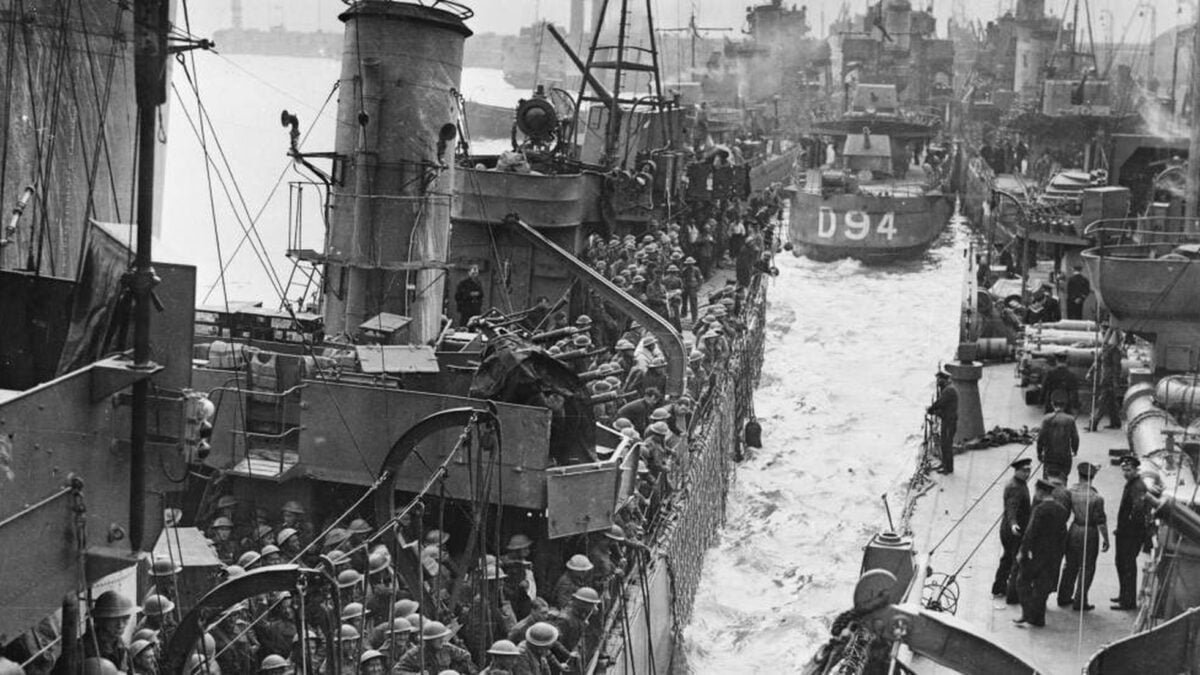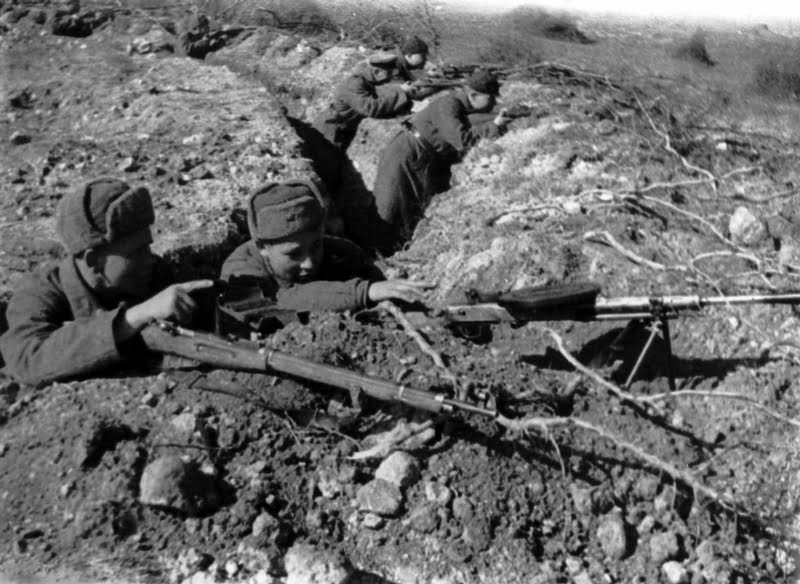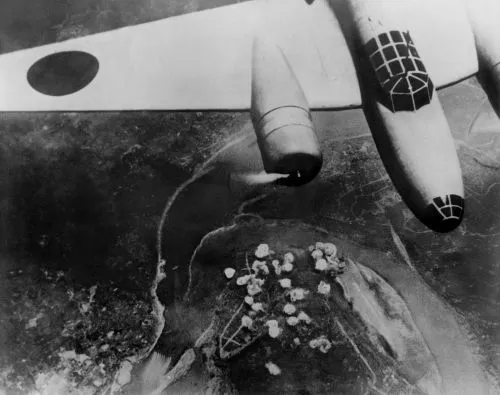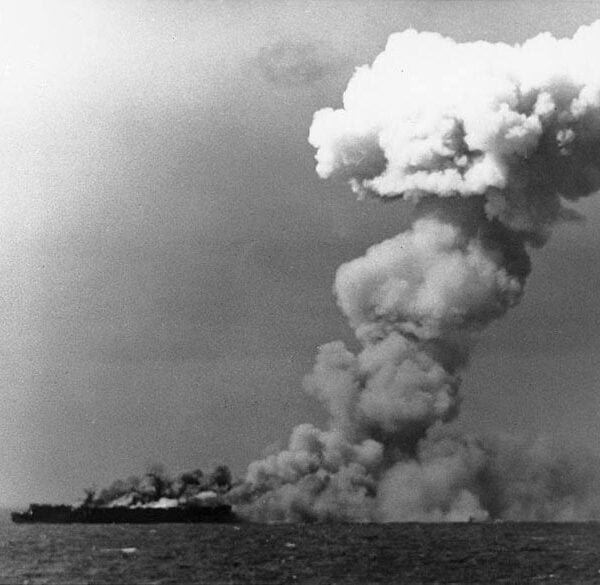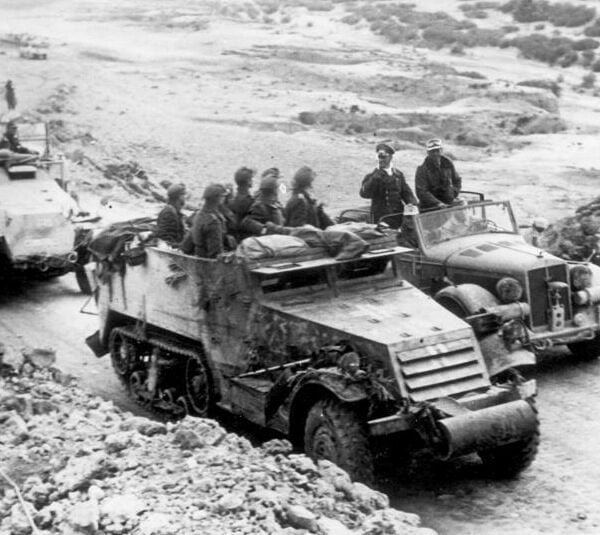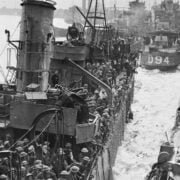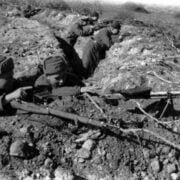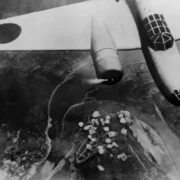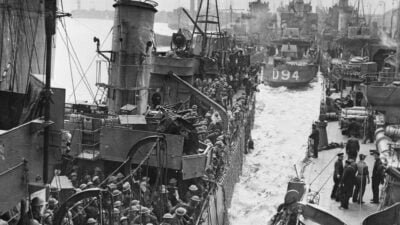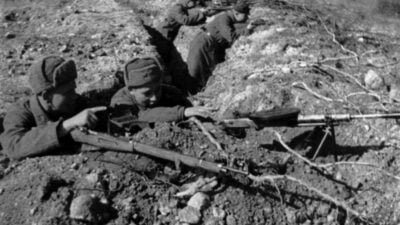Brazil played a crucial role during World War II, but do you know what the Brazilian Expeditionary Force (FEB) was? This article explores the events that led to its formation, its participation in the conflict, and its lasting impact.
Also check out: The Complex Trajectory of the South Korean War
Historical Context
Brazil’s involvement in the war was a crucial decision that reflected the country’s stance in the global scenario at the time. In 1942, under the government of Getúlio Vargas, the country declared war on the Axis powers, officially marking its adherence to the joint efforts of the Allies. This decision was not only a response to the growing threats to global peace but also a manifestation of Brazil’s commitment to democratic ideals and international cooperation.
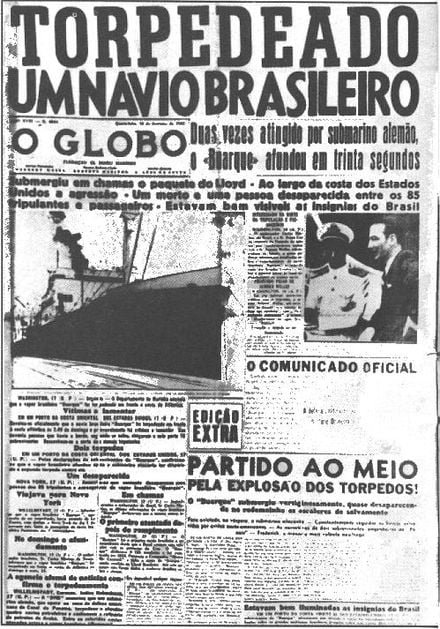

Brazil in World War II
The country’s entry into the conflict was preceded by a series of events that shaped its perception of its position on the geopolitical chessboard. The sinking of Brazilian merchant ships by German and Italian submarines in the South Atlantic, specifically off the Bahia-Sergipe coast, was one of the catalysts for this movement. The episode of the passenger ship “Baependy,” which resulted in the loss of hundreds of Brazilian lives, generated outrage and spurred public opinion to demand a vigorous response.
The decision to declare war and later send troops to the European theater of operations was accompanied by significant challenges. Internally, Brazil faced the need to mobilize its resources and prepare its infrastructure to support a military campaign abroad. Additionally, there was a need to forge solid alliances with major Allied countries, consolidating Brazil’s commitment to actively contribute to the war effort.
Political Implications
The choice to directly engage in World War II also had political implications, as Brazil sought to assert its identity as an independent and active nation on the international stage. This decision not only strengthened Brazil’s ties with the United States and other allies but also provided the country with a platform to claim a more significant role in post-war discussions about the world order.
Brazil’s commitment was not limited to the military field. The country played a crucial role in creating the United Nations Charter and actively participated in conferences that shaped the post-war international system. Thus, the historical context of Brazil’s involvement in the war is not confined to combat events but encompasses a series of political and diplomatic decisions that defined Brazil’s role on the world stage. This chapter of history not only demonstrates Brazil’s determination to address threats to global peace but also signals the beginning of an era in which the country would actively seek to contribute to the construction of an international order based on democratic values and multilateral cooperation.
Formation and Organization of the Brazilian Expeditionary Force
The formation of the force was a complex undertaking that required meticulous selection and training of Brazilian troops. Under the supervision of General Eurico Gaspar Dutra and the command of General Mascarenhas de Moraes, the FEB was carefully organized to meet the rigorous standards of the European theater of operations, marking a significant chapter in Brazilian military history.
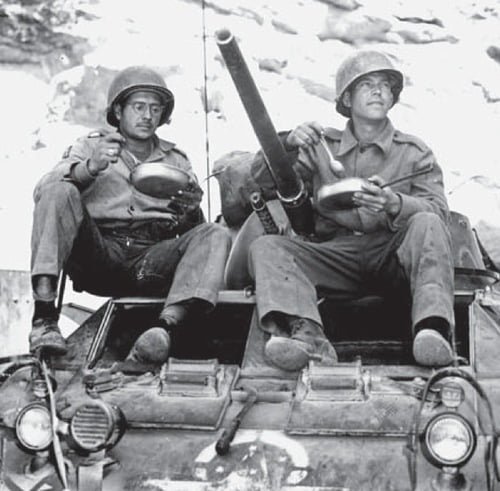

Preparing for the European Challenge
The selection of troops to compose the force was a careful process, taking into account not only the individual skills of the soldiers but also their fitness for the challenging conditions of the campaign in Italy. Intensive training was conducted to prepare the troops for the specific challenges they would face, from combat in mountainous terrain to the climatic adversities of the region.
Its organizational structure reflected a multifaceted approach. Divided into various units, it included infantry, artillery, engineering, and other specialties, each playing a vital role in the ensemble. Coordination between these units was essential for operational success, and training emphasized the importance of cooperation and effective communication on the battlefield.
Troop Training
Training was not limited to combat skills alone. Soldiers were instructed in logistical, medical, and strategic matters, preparing them for the complex challenges of a military campaign abroad. The experience gained during this preparatory phase not only increased its operational effectiveness but also strengthened the troops’ morale, creating a sense of unity and purpose.
Moreover, it had the necessary logistical and technical support to operate efficiently in the European theater. Modern equipment was provided, and logistics were organized to ensure the continuous supply of troops. This comprehensive approach to its formation and organization highlighted Brazil’s commitment to making a significant contribution to the Allied efforts in World War II.
Thus, the formation and organization not only reflected Brazil’s determination to play an active role in World War II but also demonstrated the country’s ability to prepare and deploy an expeditionary force capable of facing the complex challenges of the European theater. This crucial phase laid the groundwork for its effective involvement in the battles that would follow, solidifying its place in Brazil’s military history.
The Campaign in Italy
The participation of the force in the Italian campaign during World War II was marked by a series of challenges and triumphs that left an indelible mark on Brazilian military history. Since its arrival in the European theater of operations in 1944, it faced adverse conditions and took part in crucial battles that solidified its reputation as a combat-ready and determined force.
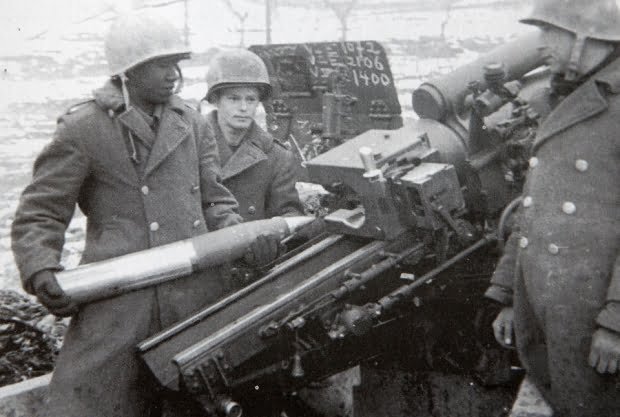

Challenges and Triumphs of the Brazilian Expeditionary Force on European Battlefields
Its entry into the Italian campaign represented a pivotal point in its involvement in World War II. Its debut in combat occurred in the capture of Monte Castello, an operation that presented significant challenges due to the mountainous geography of the region. The rugged terrain and adverse weather conditions tested the skill and resilience of Brazilian troops, who demonstrated tenacity in overcoming natural obstacles and enemy defenses.
Battle of Monte Castello
The Battle of Monte Castello was just the prelude to a broader engagement. The force also participated in the Battle of Castelnuovo di Garfagnana, where its tactical skills were again put to the test. Subsequent operations, including the capture of Montese, highlighted its ability to operate in difficult and adverse environments, consolidating its reputation as a competent force in the Italian theater of operations.
Brazilian soldiers faced not only geographical difficulties but also tenacious and well-organized German and Italian resistance. The battles were not only physical confrontations but tests of determination and courage. The episode of the Battle of Collecchio, where it played a crucial role in capturing significant enemy forces, underscored the strategic importance of Brazilian troops in the Italian campaign.
Conditions in Italy were challenging, with troops facing not only the enemy but also logistical and climatic difficulties. The harsh winter and scarcity of resources added an additional element of complexity to its operations. However, the resilience and determination of Brazilian troops were evident in their ability to overcome these adversities.
The International Recognition of the Brazilian Expeditionary Force
The remarkable performance of the Brazilian Force during World War II did not go unnoticed by the international community. The active and effective participation of Brazilian troops on the European battlefields earned them recognition and praise from Allied leaders, solidifying their reputation as a military force worthy of respect.
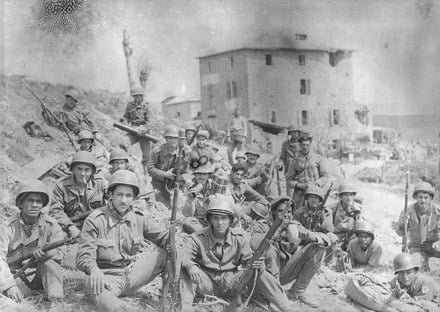

Praise and Honors for the Brazilian Troops
General Dwight D. Eisenhower, Supreme Commander of the Allied Forces in Europe, was one of the first to express his appreciation for the FEB. His commendations on the bravery and competence of Brazilian soldiers became emblematic of international recognition for the force’s contribution to the Allied cause. General Eisenhower emphasized the strategic importance of its operations, highlighting the determination and skills of Brazilian troops.
In addition to military recognition, the force received tributes from other Allied leaders. Marshal Bernard Montgomery, the British commander in Italy, expressed admiration for the force’s performance in various crucial battles. This recognition not only praised its military abilities but also strengthened the ties between Brazil and other Allied countries, contributing to the consolidation of Brazil’s international standing.
Praise for the Force
The positive impact of the FEB extended beyond the battlefields. Brazilian troops were praised not only for their military skills but also for their exemplary conduct as representatives of Brazil. Discipline and respect for international protocols solidified the image of the force as a committed and respectable expeditionary force.
International recognition was not just rhetoric. Brazilian troops were decorated with various honors and medals for their services. These honors not only acknowledged individual efforts but also highlighted the collective importance of its contribution to Allied objectives. Through the expeditionary force, Brazil gained a prominent place on the international stage, being seen not only as an ally but as a nation capable and committed to global peace.
The impact of international recognition of the force transcended the wartime period. The prominent participation of Brazilian troops contributed to the construction of a positive narrative about Brazil’s role on the international stage, influencing global perceptions of the country. The legacy of praise and honors remains a lasting testament to its dedication and effectiveness during World War II.
Impact of the Brazilian Expeditionary Force on Brazilian Society
The return of veterans from the force had a profound and lasting impact on Brazilian society. Brazil’s active involvement in World War II not only marked a significant phase in the country’s military history but also broadly influenced public perceptions of the military and the nation itself. This post-war chapter witnessed a series of social, cultural, and political changes that shaped post-war Brazil.
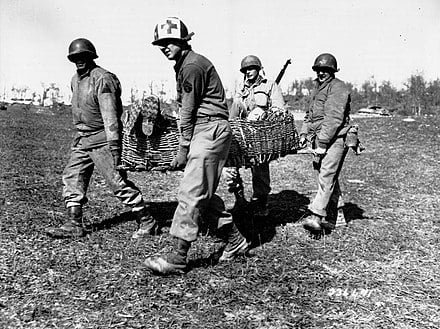

Return of Heroes and the Transformation of National Perception
The return of soldiers was marked by a warm reception and a widespread sense of national pride. The Brazilian population welcomed their war heroes with enthusiasm, recognizing the sacrifices and achievements of troops on the European stage. This affectionate reception not only honored the veterans but also contributed to forging a deeper connection between the Armed Forces and civilian society.
The impact on Brazilian society went beyond the emotional aspect. The wartime experience brought with it a growing appreciation of the role of the Armed Forces in defending national ideals. The veterans of the force became living symbols of Brazil’s commitment to global peace and security, and their stories of bravery inspired future generations to consider military service as an expression of patriotism.
Brazil as a Global Actor
Furthermore, the participation of the FEB influenced the national narrative about Brazil as a global actor. Active presence in World War II contributed to constructing an image of Brazil as a nation committed to democratic values and willing to play an active role on the international stage. This had significant implications for the country’s foreign policies, influencing strategic alliances and the pursuit of a more prominent role in international relations.
The return of veterans also triggered changes in internal social dynamics. Their combat experiences brought a unique perspective to society, emphasizing the importance of solidarity, resilience, and cooperation. These values influenced not only social relationships but also the collective vision of building a more just and united society.
The impact on Brazilian society can still be observed in the preservation of the memory of the FEB. Monuments, museums, and events dedicated to its history were established throughout the country, ensuring that the legacy of veterans is passed on to future generations. This preservation of memory serves not only as a tribute to war heroes but also as a constant reminder of the importance of Brazil’s participation in the global conflict.
Long-lasting Legacy of the Brazilian Expeditionary Force
The legacy of the force goes beyond the pages of World War II, leaving an indelible mark on military history and the national identity of Brazil. The lasting impact of the force can be observed in various spheres, from the country’s international relations to how Brazilian society perceives its role on the global stage.
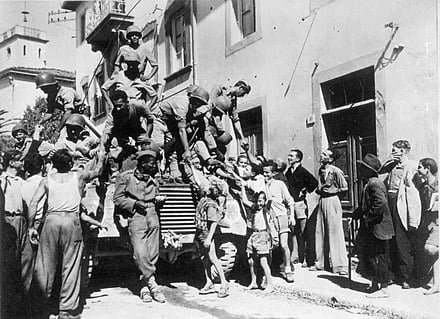

Beyond World War II
The force’s participation in World War II had significant implications for Brazil’s foreign policy. Active commitment to the fight against the Axis powers provided Brazil with a platform to claim a more prominent role in post-war discussions about the world order. The country emerged from the war as a respected international player, contributing to the formation of the United Nations (UN) and consolidating its position as a defender of democratic principles and global cooperation.
The legacy of the force also reflects in how Brazil is perceived on the international stage. The effective contribution of Brazilian troops in the European theater of operations garnered international recognition and solidified Brazil’s reputation as a nation committed to global peace and security. This legacy influenced Brazil’s diplomatic relations, opening doors to strategic partnerships and strengthening its position as a relevant player in international discussions.
Legacy of the Brazilian Expeditionary Force in Brazilian Culture
Beyond the geopolitical aspect, the legacy of the force echoes in Brazilian culture and society. The febianos became living symbols of patriotism and courage, and their stories inspire successive generations to honor their commitment to national ideals. The preservation of the memory of the FEB in monuments, museums, and dedicated events reinforces the recognition of the historical importance of these war heroes.
The legacy also extends to the military field. The experience gained during the war contributed to the evolution of the Brazilian Armed Forces, shaping tactics, strategies, and the overall approach to national defense. The expeditionary soldiers served as a source of inspiration and example for future generations of military personnel, encouraging a continued commitment to excellence and operational readiness.
Now you know what the Brazilian Expeditionary Force was!



